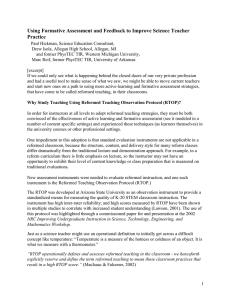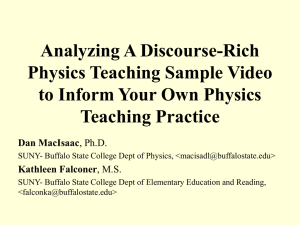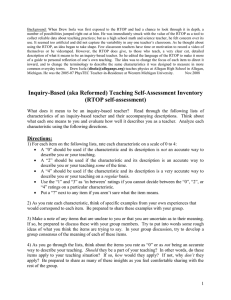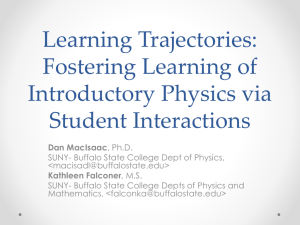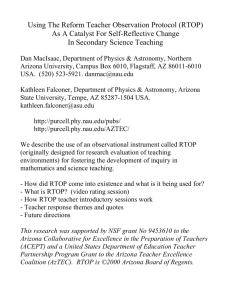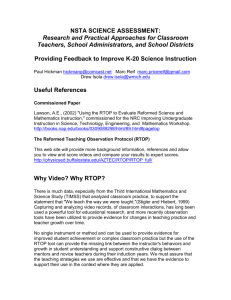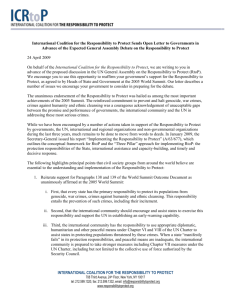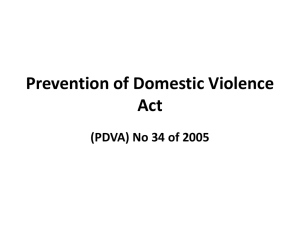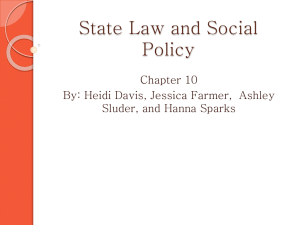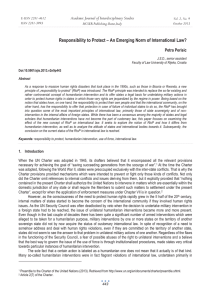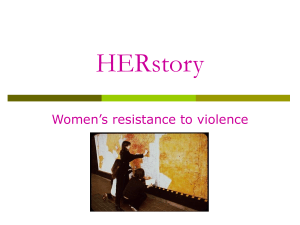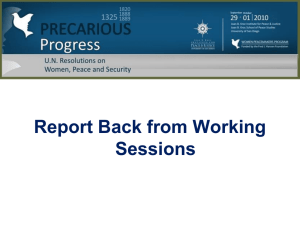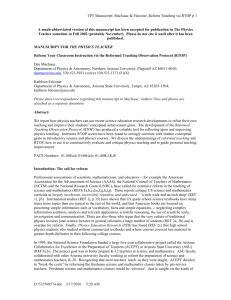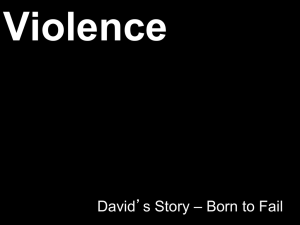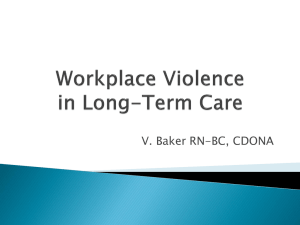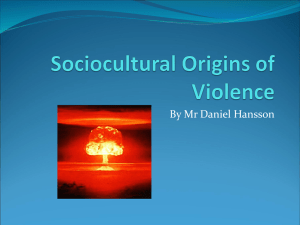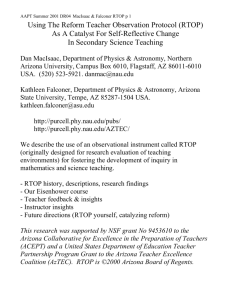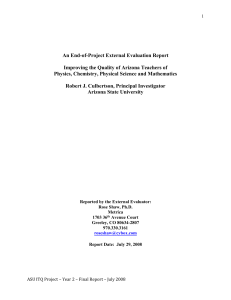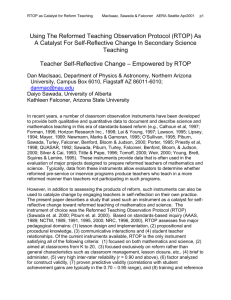R2P-WPS - International Coalition for the Responsibility to Protect
advertisement
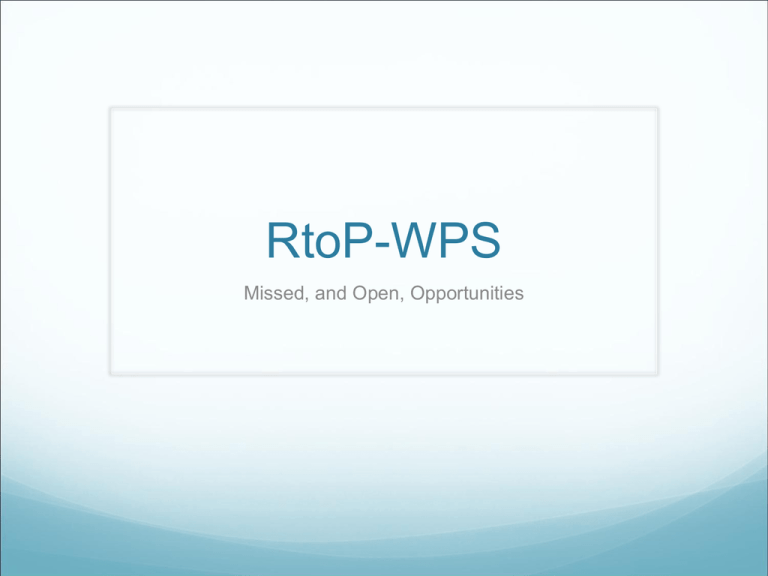
RtoP-WPS Missed, and Open, Opportunities RtoP-WPS Feminist and gendered critiques of the early development of RtoP Engendering RtoP and including women, 2005-present Areas for improvement Synergy between WPS and RtoP The path ahead: recommendations RtoP Contributions Move from state-centric to human-centric approach to security—question absolute sovereignty over ‘the domestic sphere’ Focus on prevention and postconflict peacebuilding, rather than only military response Builds on human rights framework, and reflects aspirations for human security and expectations for international engagement RtoP-WPS: Missed Opportunities in 2001 How does this speak to the women of the world? Can they also see themselves in this agreement? No mention of WPS/1325 Women viewed as victims in need of protection Almost every mention of women in reference to rape Implicitly reduced the link between gender and atrocities to an issue of mass rape (and only as a component of ethnic cleansing, not as an atrocity act in itself) ICISS 2001 2005 World Summit Clearly laid out 4 crimes, 3 of which are defined in the Rome Statute, with provisions for women-specific acts of violence Included the prevention of these crimes, and their incitement rather than viewing atrocities as a military response-problem Reinforced the idea that ‘the international’ is a ‘community’—of populations, and of states who have individual and mutual responsibilities No explicit reference to women, 1325 or its core themes: participation, prevention, protection, relief and recovery Gender Sensitive? Gender Blind? UNSC: Women and Mass Atrocities Victims/Survivors—Constituents/Decision-Makers Emphasis on rape as constitutive act of genocide, war crime and crime against humanity recognizes the horrific scale of sexual violence against women in conflict, BUT can overlook: Women as agents, citizens/constituents or decision-makers (as did 1325) The many other forms of GBV/VAW and their causes, escalatory paths and prevention strategies VAW and Mass Atrocities Women-Specific Widespread or systematic attacks Sexual violence: rape, sexual slavery, enforced prostitution, forced pregnancy, enforced sterilization Persecution on the basis of gender in relation to acts under the jurisdiction of the Court (e.g. torture, enslavement, deportation, severe violations of IL) ‘‘Persecution’ means the intentional and severe deprivation of fundamental rights contrary to international law by reason of the identity of the group or collectivity.’ RtoP and Women’s Security: Buttressing Norm, Complementary Commitment Take early action through diplomatic and other non-violent means when states fail to protect [women!] Investigate why it has been so difficult to stem widespread or systematic sexual violence in some cases Include women’s views and women leaders in peace and security initiatives (including response to manifest failures to protect), End impunity for violence against women, Train civilian and military personnel on the causes and pathways of severe insecurity for women, and on strategies for protection 2009 SG Report RtoP: Contributing to WPS Protecting and Advancing Women (and women’s rights) as core components of state and international responsibility the role of women in preventing and resolving conflicts, the mainstreaming of gender perspectives into peace operations, the measures needed to protect women in conflict effectively, and the equitable representation of women in peace and conflict decision-making Leveraging RtoP Early Warning Gender-sensitive indicators: broaden collective knowledge on how the targeting of women for specific acts of violence contributes to wider instability and insecurity Prevention Capacity building specifically for women and women’s participation in political life = core component of the responsibility to prevent Security Council Response Mass violence against women is a threat to international peace and security, and the UNSC has a responsibility to take timely and decisive action SG working group on gender and RtoP The Path Ahead 1. Raise awareness and Build Community: Women constituencies in support of WPS and RtoP 2. Leverage RtoP in WPS commitments: how is RtoP relevant/useful to your work? -As advocacy tool for state responsibility and international assistance -To remind leaders at the national, regional, and international levels that people are the heart of governance and the constituents of policy -Specific policy areas: Protection, Justice (ICC), SALW control, prevention 3. Involve women in RtoP development—to shape the agenda, add gender sensitivity, make it relevant to and reflective of the lived experience of women. Lessons from the field What causes widespread violence against women? How does this relate to broader insecurity and instability? What resources and assistance are needed to halt escalation? What preventive action should be taken? Tensions How to provide direct protection from ongoing atrocities without undercutting up/down-stream structural protection efforts (promotion, participation and advancement of women)? Is there a peace/justice tension? How to galvanize political will and resources without perpetuating the image of women as victims?
